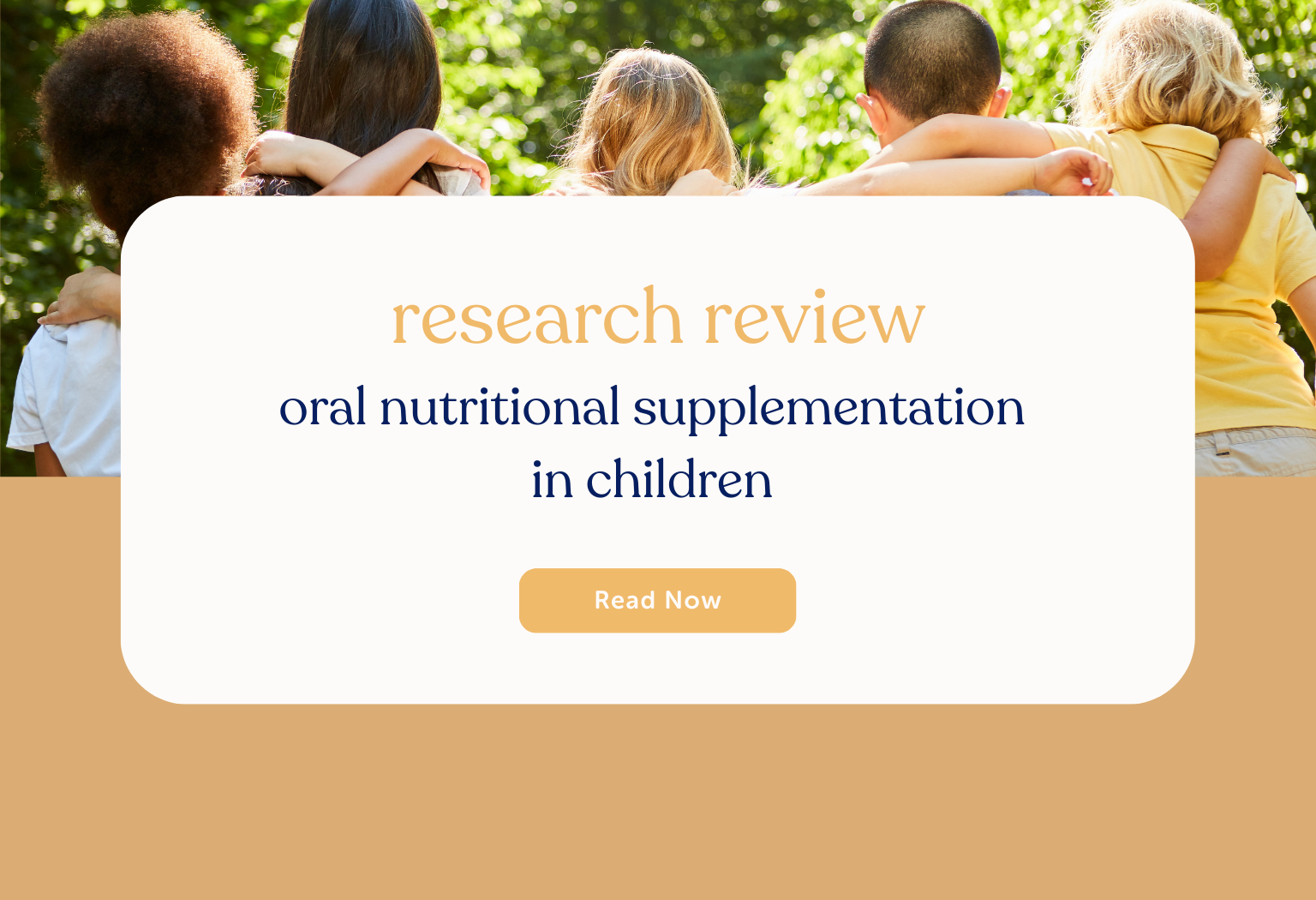The Research:
This study, titled "Effect of Oral Nutritional Supplementation on Growth in Children with Undernutrition: A Systematic Review and Meta-Analysis," conducted a detailed analysis of the impact of oral nutritional supplements (ONS) on promoting growth in children aged 9 months to 12 years who are undernourished or at nutritional risk. The researchers synthesized evidence from 11 randomized controlled trials (RCTs), comprising 2287 children with mild to moderate undernutrition, and analyzed changes in anthropometric measures (weight, height, and related indices) to evaluate the effectiveness of ONS compared to dietary counseling (DC) alone or placebo.
Key Findings:
- Weight Gain: ONS interventions significantly improved weight gain compared to control groups. Children in the ONS group experienced a weight gain of 0.423 kg (95% confidence interval [CI], 0.234-0.613, p < 0.001) over the follow-up period of up to 6 months. Weight gain was noticeable as early as 7-10 days into the intervention.
- Height Increase: Children who received ONS also demonstrated a greater increase in height (0.417 cm [95% CI, 0.059-0.776], p = 0.022). The catch-up growth for height was generally observed after sustained intervention periods (up to 90 days).
- Anthropometric Measures: In addition to weight and height, improvements were noted in weight-for-age Z-score (WAZ), height-for-age Z-score (HAZ), weight-for-height Z-score (WHZ), and other related indices.
- Longitudinal Impact: The analysis showed continued improvements in anthropometric measures over 30, 60, and 90 days. The effect was particularly pronounced when ONS was combined with dietary counseling (ONS + DC), which resulted in superior growth outcomes compared to DC alone.
- Energy Intake: Children in the ONS group had a significant increase in total energy intake (312.2 kcal [95% CI, 139.8-484.6], p = 0.000), which correlated with the observed improvements in growth parameters.
- Significance of Timing: The review emphasized that nutritional interventions in early childhood, particularly before the age of five, are critical for preventing stunting and other long-term consequences of undernutrition. However, ONS can still be effective for catch-up growth beyond the first 1000 days of life.
Study Strengths:
- The meta-analysis fills a crucial gap by systematically reviewing ONS interventions targeting undernourished children without chronic diseases.
- It provides a comprehensive analysis of multiple studies across different geographic regions, adding robustness to its conclusions.
Study Limitations:
- Significant heterogeneity was observed across the included studies, in part due to differences in study populations, interventions, and durations.
- Most studies had relatively short follow-up periods (30-90 days), limiting the ability to assess long-term sustainability of the growth improvements.
- The review did not include studies on children older than 12 years or those in the adolescent stage, which may be important for understanding ONS impact in later developmental stages.
Conclusion:
The study concludes that ONS is effective in promoting catch-up growth in children with undernutrition, particularly when combined with dietary counseling. These interventions can have significant short-term benefits for improving weight and height in children, and long-term nutritional interventions are recommended to sustain these benefits and reduce the risk of chronic malnutrition.
Reference List:
- Zhang, Z., Li, F., Hannon, B. A., Hustead, D. S., Aw, M. M., Liu, Z., Chuah, K. A., Low, Y. L., & Huynh, D. T. T. (2021). Effect of Oral Nutritional Supplementation on Growth in Children with Undernutrition: A Systematic Review and Meta-Analysis. Nutrients, 13(9), 3036. https://doi.org/10.3390/nu13093036.

